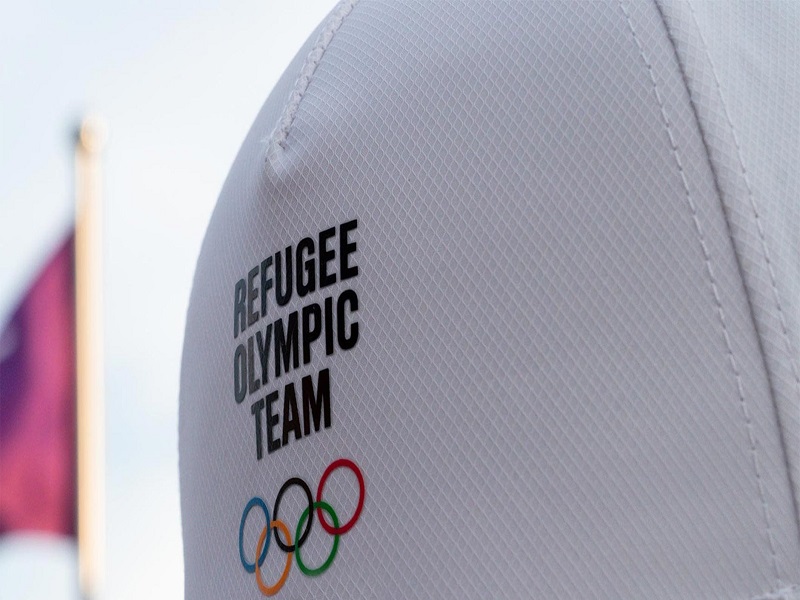Ahead of World Refugee Day on 20 June 2022, the International Olympic Committee (IOC) has released the initial list of 44 athletes who have been awarded Olympic Scholarships for Refugee Athletes to help them train towards the goal of being selected for the IOC Refugee Olympic Team Paris 2024.
The 44 athletes come from 12 countries, are hosted by 16 National Olympic Committees (NOCs) across all five continents, and are competing in 12 sports. Of this initial group, 23 are Olympians who competed as part of the IOC Refugee Olympic Team Rio 2016 and/or Tokyo 2020, and three are individual athletes who are new to the scholarship programme.
Addressing the athletes, IOC President Thomas Bach said: “We welcome you to the Olympic community and wish you luck in qualification. I know what a difficult period it is to go through to qualify for the Olympic Games, and so we admire how you are meeting the challenge given all the difficulties you have overcome.”
The scholarships are fully funded by the IOC through its Olympic Solidarity programme dedicated to refugee athletes, and will provide the athletes with the support they need to train and compete in qualification tournaments in the build-up to the Olympic Games Paris 2024.
Three of the athletes – badminton player Aram Mahmoud, weightlifter Cyrille Tchatchet, and marathon runner Tesfay Felfele – are benefitting from transition scholarships, as they have become or are in the process of becoming citizens of their host countries.
Coming from Afghanistan, Cameroon, Congo, the Democratic Republic of Congo, Eritrea, Ethiopia, Iraq, the Islamic Republic of Iran, South Sudan, Sudan, Syria and Venezuela, the Refugee Athlete Scholarship-holders are competing in athletics, badminton, boxing, canoeing, cycling, judo, karate, shooting, swimming, taekwondo, weightlifting and wrestling.
Their refugee status has been confirmed by the United Nations Refugee Agency (UNHCR), and they are being supported by 16 host NOCs (Australia, Austria, Brazil, Canada, Germany, Great Britain, Israel, Jordan, Kenya, Portugal, the Netherlands, New Zealand, Switzerland, Turkey, United States of America, and Uruguay).
A ground-breaking initiative
The Olympic Scholarships for Refugee Athletes were established following the historic participation of the first IOC Refugee Olympic Team at the Olympic Games Rio 2016. The team was set up by the IOC to raise awareness of the magnitude of the global refugee crisis, and was first announced to the world by President Bach at the 2015 UN General Assembly. The IOC Refugee Olympic Team Rio 2016 was eventually made up of 10 athletes, who sent a strong symbol of hope to the world through their journeys to the Games and their performances in Rio de Janeiro.
Since then, the programme has expanded to offer NOCs the opportunity to identify refugee athletes living in their countries and support them throughout their training, preparation and participation in high-level competitions. This led to more than 50 Refugee Athlete Scholarship-holders being supported in the build-up to the Olympic Games Tokyo 2020, with 29 athletes in 12 sports eventually being selected and competing for the IOC Refugee Olympic Team Tokyo 2020.
Increased support from the Olympic Refuge Foundation
Strengthening support to refugees and populations affected by displacement continues to be a key priority for the IOC, and forms part of Recommendation 11 of Olympic Agenda 2020+5. The global refugee crisis is still ongoing and increasingly urgent – for the first time, more than 100 million people worldwide have currently been forced to flee their homes – and so the IOC’s mission is more relevant than ever.
Building on this commitment, there will be an IOC Refugee Olympic Team not only at Paris 2024, but also at the Youth Olympic Games (YOG) Dakar 2026, while increased access to sport for displaced young people is being ensured 365 days a year through the work of the Olympic Refuge Foundation (ORF). As part of its growing remit, the ORF will also manage the IOC Refugee Olympic Teams at Paris 2024 and Dakar 2026, fulfilling the functions of an NOC, and will help the Refugee Athlete Scholarship-holders continue their sporting careers and build for their future, whether they compete at the Games or not.
The ORF recently signed a landmark Memorandum of Understanding with the UNHCR, building on the IOC and the UNHCR’s 25-year cooperation, and works closely with stakeholders from the Olympic Movement, international organisations, the private sector, non-governmental organisations and various foundations to create safe sports facilities and develop sports activities in these environments. The ORF has already supported 12 programmes in 10 countries as part of its goal for one million forcibly displaced young people to have access to safe sport by 2024, and its work was recently honoured with the prestigious Princess of Asturias Award for Sports , which acknowledged how the IOC Refugee Olympic Team represents a message of hope for the world.
The composition of the IOC Refugee Olympic Team (EOR)* Paris 2024 will be announced in 2024. The 44 Refugee Athlete Scholarship-holders’ stories and journeys can be followed on the IOC Refugee Olympic Team social media handles, and under the hashtags #RefugeeOlympicTeam #Paris 2024 #StrongerTogether and #OlympicRefuge.
* The IOC Refugee Olympic Team will compete in Paris under the acronym EOR, which stands for Equipe Olympique des Réfugiés.

